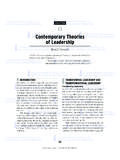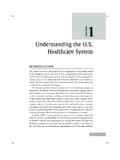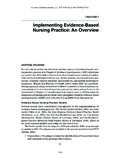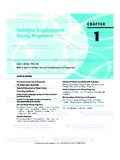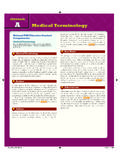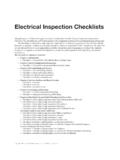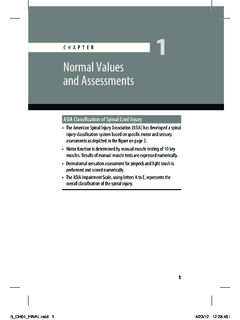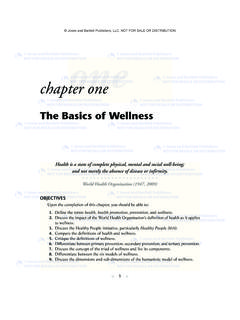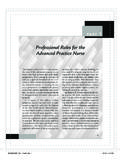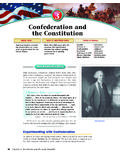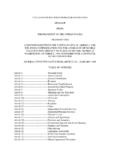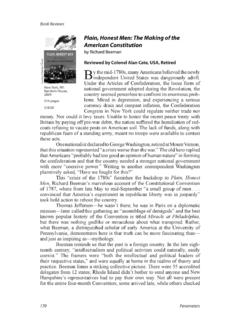Transcription of CHAPTER The Articles of Confederation—The 2 First U.S ...
1 37 CHAPTER2 The Articles of confederation The First GovernmentChapter ObjectivesIn this CHAPTER you will learn .. That George Washington was not really the First Whether Christopher Columbus really discoveredAmerica That the First United States government failed andhad to be reorganized That the Constitution was based on The FederalistPapers That the Constitution was ratified as a compromiseIntroductionIf someone were to ask you: who was the First president ofthe United States, you would confidently reply, GeorgeWashington, right? Well, what if you were to find out thatGeorge Washington was notreally the First president? In fact, what if you found out that he was not even the second, third, or fourth? Technically, George Washingtonwas the eighthpresident of the United States!
2 So, who camebefore him?Was it Thomas Jefferson? No, he became president Lincoln? No, he became president Revere? No, he was never , it must have been Benjamin Franklin! No, hewas never president, , who were these seven men who preceded GeorgeWashington? Well, the First one was John Hanson. Aha!The guy who signed the Declaration of Independence! No,that was John Hancock. So who was this John Hanson per-son? Before we answer that, let s take a look at the othersix presidents who preceded Washington: Elias Boudinot,Thomas Mifflin, Richard Henry Lee, Nathan Gordman,Arthur St. Clair, and Cyrus are that you do not know who anyof thosepresidents were, and, in that respect, you are certainly notalone. They are not mentioned in most history books, es-pecially the books that you probably read while studyinghistory in school.
3 And when we think about famousAmericans during the colonial and revolutionary times,we refer to Washington, Jefferson, Franklin, and severalothers, but noneof the First seven presidents! Why, then,do we know so much about George Washington, but verylittle about the presidents who came before him? In orderto find out, let s begin with a quick history of Christopher Columbus Discover America?Over the past few years, there has been a great deal of con-troversy surrounding Christopher Columbus discovery ofAmerica. Emphatically, some who are itching to rewritehistory declare: Christopher Columbus did notdiscoverAmerica! Clearly, they are wrong. If their argument wasthat Christopher Columbus was not the firstperson to dis-cover the land that became America, then they are to discoversomething does not necessarily mean beingthe First person to do so.
4 Consider these discoveredthat the Italian restaurant in hisneighborhood made excellent discoveredthat sleeping on a heating padmade her back feel much better in the discoveredAmerica when she First visited three of these people made discoveries, yet none ofthem was the firstto do so. Similarly, Christopher Columbuswas not the First person to discover America; he discoveredit in 1492. A bunch of people had discovered it earlier, andhundreds of millions have discovered it since that , then, do we point to Columbus discovery? The Importance of Columbus DiscoveryThe reason we celebrate Columbus Day every year, as op-posed to other discoverers of America, is because Columbus discovery paved the way for the settlements that eventu-ally led to the formation of the United States of America.
5 Itdoes not matter whether he was the First , second, fifth,eighth, or 3,894th person to discover America. What doesmatter is that hisdiscovery was the one that counted interms of colonial settlements mostly from England, France,and Spain that eventually resulted in the creation of theUnited States of 2/24/10 6:51 PM Page 3738 CHAPTER 2: The Articles of confederation The First GovernmentFrom Columbus to the ConstitutionIf we were to study the entire saga of this land fromColumbus settlement to the formation of the Constitution in great detail, that would be an entire book of its own, ifnot several of them! Instead, let s take just a brief look atwhat happened over that 300-year countries began to send colonists to settle inthe New World.
6 It was a great trade-off for both parties;the settlers were able to enjoy a combination of adventure,profit, and religious freedom. You see, here in the UnitedStates, we are permitted to worship in whatever way wechoose and to whomever we choose, or decide that we donot want to be religious at all (more about that later inChapter Four). That is not the case in some other coun-tries, and it certainly was not the case in various Europeannations back in the 1700s. Additionally, the land on which the United States sits isone of massive proportion, indeed! Imagine all of that landreadily available to anyone who simply ran and jumped onit and said, mine! This provided great economic opportu-nity for anyone who had the financial resources to sendworkers here to work the land.
7 As the saying goes, theworkers had the opportunity to make the pie for the owners,but who then gave the workers a slice of the pie? Colonial life was not all rosy, however. Those living inthe colonies from different countries had territorial andcultural disputes not only among each other, but alsowith multiple Native American Indian nations, whose in-habitants had been displaced by the settlers. At that time,the British colonists were extremely dependent upon andloyal to their Mother Country: Great Britain. Much like asmall child who needs the guidance and protection of itsparents, the colonists relied on Britain for that support. AsBritain eventually became the dominant colonial nation inthe New World, thus greatly reducing if not altogethereliminating any threat to the colonists from other nations,things began to colonists no longer behaved like loyal, affectionatetoddlers.
8 Instead, they acted more like rebellious teenagers,demanding various rights that their parent was not provid-ing. As a result, they decided to break apart from GreatBritain and become their own nation, simply by saying that swhat they would do! In fact, the Declaration of Independence is simply a fancyway to state, we say we re free! Think about it in modern-day terms. Suppose that you and nine of your friends decideto take over an office building and you declare, This build-ing is now our country. It is our property, and we can dowhatever we want here! Well, in that case, what wouldprobably happen next is that the security guard would haveall of you removed. If you managed to overpower theguard, the police might be called in to do the job.
9 If, aston-ishingly, the ten of you overpowered the entire police de-partment, then perhaps the National Guard would be calledin, followed by the entire military! And, if, by someincredible miracle, the ten of you managed to overpower allof those forces, to the point where they simply stopped fight-ing and agreed to your terms, then guess what: the ten ofyou would, indeed, be your own nation!Of course, the chances of ten individuals overpoweringthe entire United States Armed Forces is about as likely as anelephant growing wings and flying like a bird. Nonetheless,that is what it would take to gain independence. And in thecase of the colonists, the odds might not have been quite thatextreme, but they were extreme nonetheless, and the resultwas rather miraculous in its own see, Great Britain was the most powerful force in theworld.
10 Yet the colonies were barely even united. This wasnot a case of 13 colonies meshing together , many colonies were reluctant to join forces withone another, and many individuals inside the colonieswere either loyal to Great Britain and did not want to rebel,or simply did not want to risk life and limb to do so. Thenagain, some simply did not care either way; they just wantedto go about their lives and political issues and injustices didnot really concern Great Britain received the news that the colonieshad formed their own nation, the United States ofAmerica, they sent in troops to squash the better part of the fighting was not over until 5 yearslater. In the meantime, the fledgling young nation had tobe governed. During the Revolutionary War, also knownas the War for Independence, the United States was gov-erned by the Second Continental Congress (the First wasthe one that was formed to declare independence in thefirst place).
